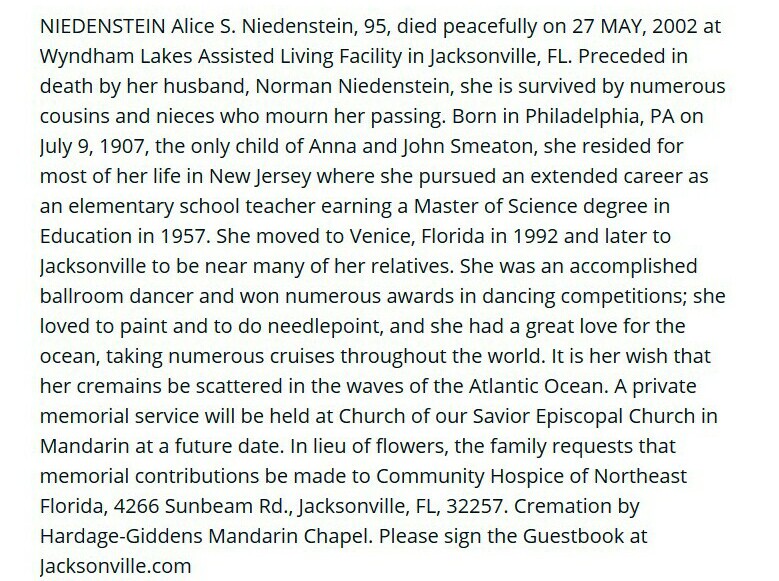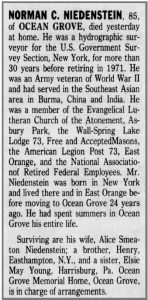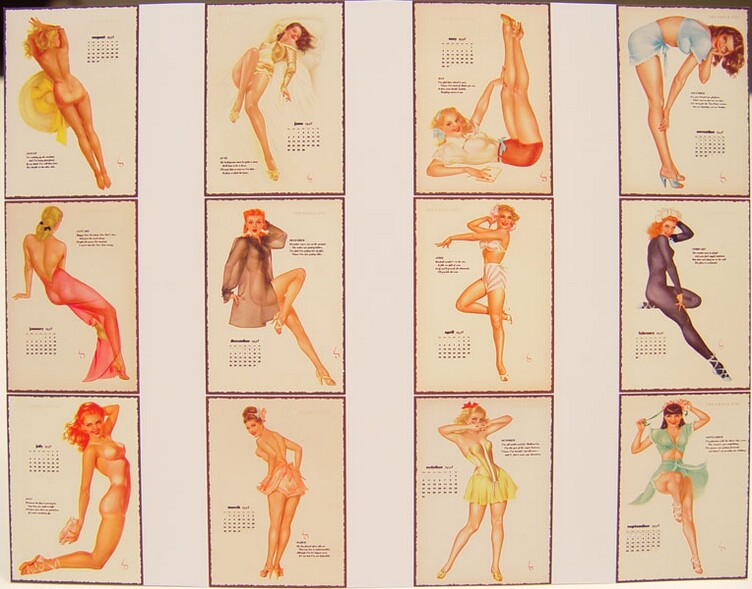My father was a Catholic, nominally. I don’t think he ever went to church as an adult. One of my aunts said when he did go to Mass as a child, he always managed to avoid the collection plate.
Similarly, my mother was a Protestant, nominally. I don’t think she ever went to church as an adult either. Her way of staying right with the Lord may have been simply to make sure I attended Sunday School. She accomplished this by finding neighbors who attended a nearby Protestant church and were willing to give me a ride each Sunday. She didn’t seem fussy about which flavor of Protestant services I attended; I remember Methodist, Presbyterian and Baptist, depending on where we were living. Thank you, Mr. and Mrs. Eick, pronounced “Ike”, of Linwood Place, for giving me a weekly ride to the Washington Street Baptist Church in your rumble-seated car, and for sometimes treating me to a second breakfast if I showed up for my ride too early.
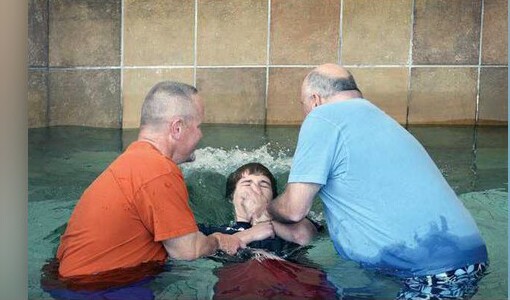
Full immersion baptism, Chestnut Mountain Church, Flowery Branch, Georgia
I was baptized a Catholic at the age of one month, so even if the rules about who gets into Heaven are as stringent as I’ve heard from some Catholic sources, I remain eligible. In the Baptist church, baptism (full-immersion, y’all, Acts 8:38, Mark 1:5) is reserved for those “able to make a mature confession of faith”; most baptisms I’ve seen were of young people in their early teens or a little younger; certainly mature enough .
Somehow, the Baptists never got around to baptizing me; that’s probably just as well, because there are some doctrinal problems with being baptized twice; your mileage may vary. The closest I have come to professing the Baptist faith openly was having “BAPTIST” stamped on my army dog tags, along with my blood type, “O”.
Soon after I opened my first checking account, a local radio station aired a feature story about an orphanage in Kearney (next to Newark) burning down, and soliciting contributions to rebuild. The fire sounded pretty devastating, and I had once written a book report on Oliver Twist, so I was ripe. I broke out my new checkbook and wrote Sacred Heart Orphanage of Kearney a check for something like five or ten dollars, not a trivial sum then. When my first bank statement arrived, I asked my mother to help me understand it. As we reviewed the half-dozen or so cashed checks, we came to the one to Sacred Heart, and she said “What’s this?!” I relayed the whole burnt-down orphanage story, which only seemed to anger her. Raising her voice just a little, she said “The Pope doesn’t need your money.” End of discussion.
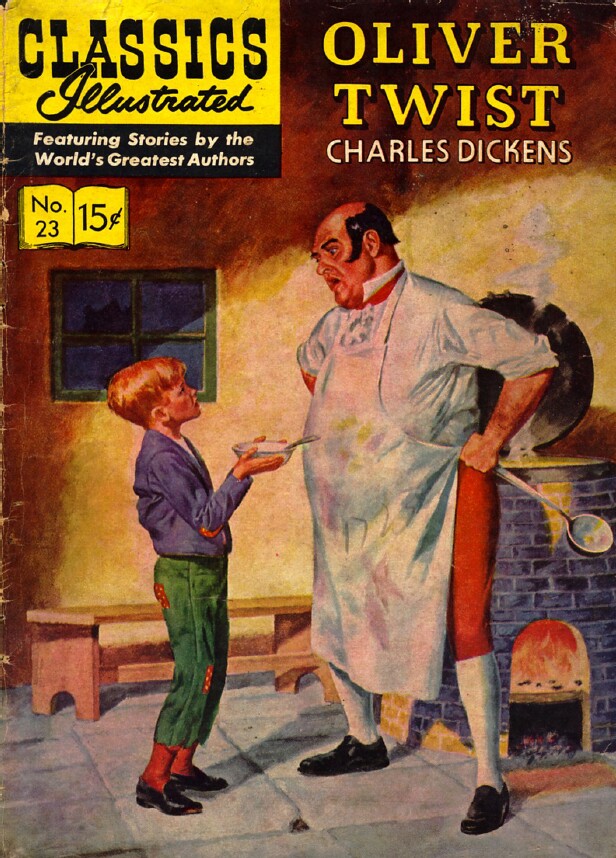
I married a woman who was raised Catholic; this never posed a problem because she was not a churchgoer either. Back when Catholics were forbidden to eat meat on Friday, she ignored the rule; the only time it ever came up was once when we were out shopping – she said “It won’t feel right to eat meat on Good Friday”, and I said “Okay, let’s get fish then.” We started both our kids along the Catholic path of confirmation and first communion, because that way they can make up their own minds later on, right?
During a confirmation ceremony, the officiating bishop asks the candidates several questions from a predefined list. The kids get advance coaching in the questions and the correct answers from adult volunteers; those kids who have not attended parochial school find the questions and concepts more difficult. Despite my protests, I got volunteered into coaching my older son. To keep my own conscience clear while still following the study guide, my practice questions took the form “Now, if the bishop asks you ‘How does the Holy Spirit help us?’, what are you going to say?” On the day of the ceremony, I got some holy water sprinkled in my face as the bishop’s procession entered the church. It didn’t burn, so I guess that approach was okay.
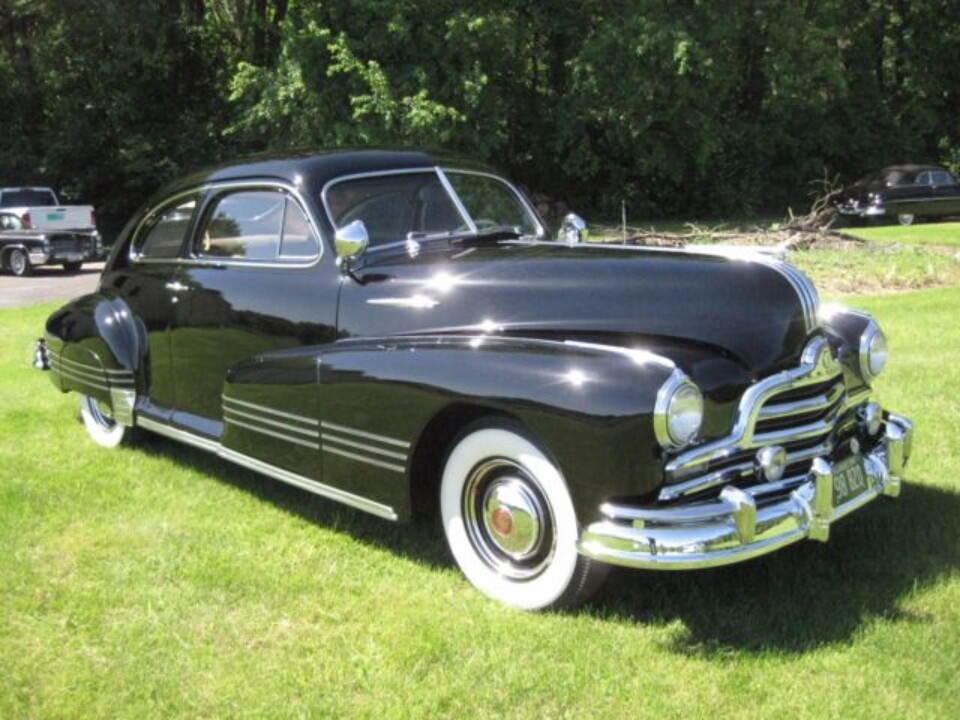
Imagine this seven years older, green and much less shiny
One thing I did in high school was definitely a Bad Thing, religion-wise, as was confirmed by Miss Riley, our world history teacher. I had a ’47 Pontiac, and in the morning I might pick up a few friends, then, once at school, if I was not planning to stick around, ask “Who’s going in?”. Those remaining in the car would drive around aimlessly with me for the rest of the day, or at least until it was time for me to go to work. I was not at all familiar with the ceremonies of the Catholic Church, and one Ash Wednesday my friends wanted to get their ashes applied before school. I drove around town under their direction, but the churches all had long lines. Some of them decided to get out and line up anyway, leaving just me and one passenger. Knowing that the only excuse to arrive late to school that day was to enter through the attendance office with ashes on our foreheads, I suggested using the ashes in the car’s ashtray. I don’t recall whether my passenger joined in or not, but I decorated my forehead with a smudge similar to those I had seen walking the streets all morning and entered the school without difficulty. I should have thought to wash off the ashes as soon as I got past the attendance office, but did not. When I got to world history class, Miss Riley, who had attended this very high school with my mother and knew her well, took one look at my smudge and squawked “YOU’RE NOT CATHOLIC!”. She didn’t know, of course, that my ashes were fake; that would have been so much worse; she was angry at my assumed (by her) decision to present myself to a priest as Catholic to obtain an excuse to be late to school. She told me I should be ashamed, and to wash my face and think very hard about what I’d done. I was ashamed, or at least I am now, for disrespecting someone else’s religion; I did wash my face; and I do continue to think about religion, although not so hard any more.
Thoughts
Back in the day, my wife and I liked to explore old cemeteries. While admiring the statuary and mausoleum architecture of a Catholic cemetery in Westchester, we noticed off at one side two rows of tiny headstones. There were maybe 30 or 40 in all, each very close to the next, and marked with numbers instead of names. We wondered what that was all about, and one day my wife called to ask. The woman who answered asked her in turn “Are you Catholic, dear?”. Getting an affirmative, she explained that section was the unconsecrated part of the cemetery, and those were graves of unbaptized babies and stillbirths. I don’t know what we expected, but that made us sad.
Church dogma then said the unborn and unbaptized were consigned to Limbo., which Encyclopedia Britannica defines as “Limbo, in Roman Catholic theology, the border place between heaven and hell where dwell those souls who, though not condemned to punishment, are deprived of the joy of eternal existence with God in heaven.”
However, according to Wikipedia, “Recent Catholic theological speculation tends to stress the hope, although not the certainty, that these infants may attain heaven instead of the state of Limbo.” So that’s at least something.
The editor of the syndicated newspaper column The Ethicist once responded to a question from a lapsed-Catholic-gone-atheist reader who had been pressed into service as a pallbearer in a Catholic funeral ceremony. The main point of his response was “Your participation in the service was not hypocrisy; it was an act of compassion and affection for your family. To join in some parts of the service does not require you to join in every part.” I commented to the editor:
I liked what you wrote in your “pallbearer” segment. As a non-Catholic married into a large Catholic family, I have been in that situation several times. The trick when participating in any Catholic ceremony is to finagle things so as to never be seated in the first row. One can then take the cue from others to stand, sit, or slide forward in lieu of kneeling – without seeming disrespectful, and optionally without praying.
There is a bumper sticker that says “God is who, evolution is how”, an attractive simplification. The real truth may be so deep and complex that no human has yet even imagined it.
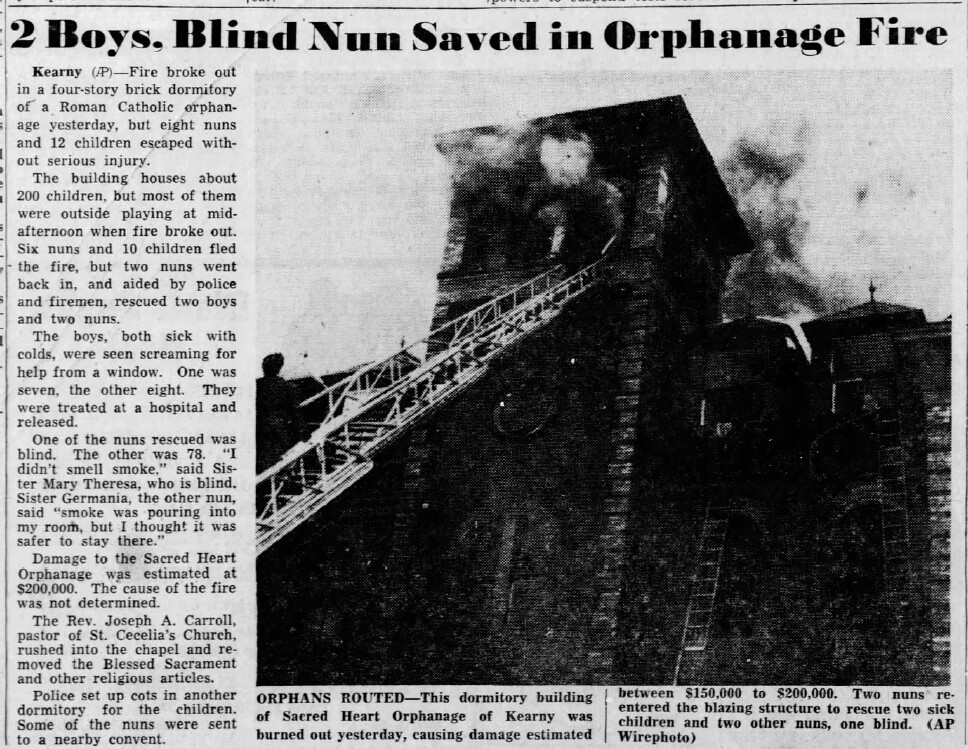
Plainfield Courier-News, Nov 1, 1958

